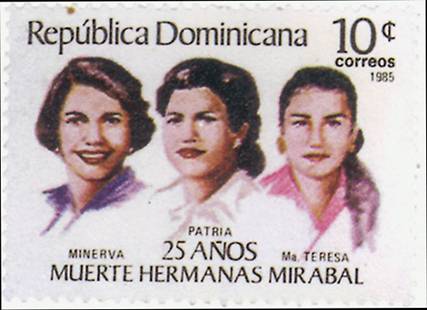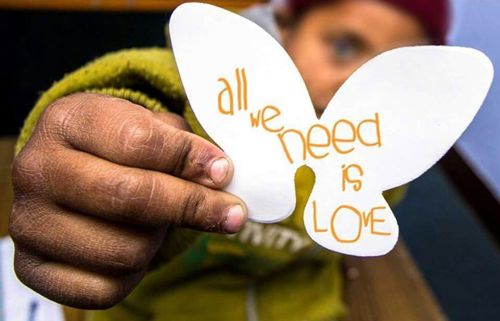Yesterday millions of people commemorated a meaningful date. It was the International Day for the Elimination of Violence Against Women. This day was first promoted (1981) by the Latin American feminist movement and later (1999) it was established by the United Nations General Assembly. It remembers the murders, 59 years ago, of three of the four Mirabal sisters at the hands of Rafael Trujillo’s secret police. Trujillo was a military dictator who ruled the Dominican Republic for 31 years, from February 1930 until May 1961, when he was ambushed and killed by the resistance.
Las Mariposas (The Butterflies)

- Patria, Minerva and María Teresa Mirabal were key figures in the fight against Trujillo’s regime. Within the resistance group they were part of, Movimiento Patriótico 14 de Junio, the sisters called themselves “Las Mariposas“. They were arrested, raped and tortured several times. In spite of that, they continued their fight until their deaths in 1960.
- Minerva Mirabal was the first woman in the Dominican Republic who graduated as a lawyer. She experienced Trujillo’s sexual harassment. She rejected him. As a result Minerva was denied the permit to practice her profession.
- The sisters were strangled and then clubbed so that, when thrown into their vehicle off a precipice, it looked like they had died in a car accident. These grisly murders are considered by many one of the main reasons that caused the fall of Trujillo’s dictatorship.
- The Casa Museo Hermanas Mirabal was created in 1994. It is a residence where the sisters spent their last ten months of their lives. The House was a location used in the 2001 film “In the Time of the Butterflies”. Directed by the Spanish Mariano Barroso, the movie tells the story of the Mirabal’s fight against Trujillo.
- The House is also the final resting place of the Mirabal sisters; as well as of Rufino de La Cruz, their driver, who was also murdered that day.
- In 1997 the Government recognized the Mirabals as national martyrs.
- The sisters were native to one of the central provinces of Cibao, Salcedo. In November 2007 the name was changed to Mirabal Sisters Province to honor their names and their legacy.
The Problem
One in three women suffers violence during their life. the Latin America and the Caribbean region 1.1 million teenage girls ages 15-19 have experienced sexual violence or any other sexual act. Since every person has the right to a life without violence, this is a severe, widespread (and somewhat insidious) human rights violation. It ruins lives, causes diseases and incalculable pain and suffering. This is a right that is not lost, or to which a woman renounces because she is in a relationship, be it domestic or of any other type.
According to the World Health Organization, the most common and most frequent types of violence include those acts that cause or are likely to cause harm or physical, sexual or mental suffering to women. They include threats, coercion, arbitrary deprivation of liberty, in public or in private, partner violence, sexual violence by a couple or someone other than the couple, human trafficking and harmful practices such as female genital mutilation. The latter, along with rape and femicide, are the ultimate expressions of violence against women.
Solutions

Violence against women can be prevented and eliminated. According to UN-Women the most basic action to eradicate it is to provide equal rights education in early childhood. This in order to instill in the children’s minds values such as respect, tolerance, love for each other, companionship and gender equality.
- Culture and society exert a strong influence on aspects such as the equal division of work and responsibilities. A primary goal is to change the social norms that tolerate and condone violence against women. Usually, these are deeply rooted in centuries of male domination and are part of a cycle of abuse. They justify gender roles that traditionally identify women as inferior to men.
- Economic empowerment is one of the key factors that help reduce gender inequality and gender-based violence. Governments and international organizations must create policies that facilitate women’s independent access and control to their economic and financial resources.
- There is no country in the world in which women are fully protected against gender based violence. In some cases it is often unreported due to impunity, shame and gender inequality. Although many countries have laws that penalize it, 21 countries around the world do not have any type of legislation on it. It is important to have a legal framework that allows victims to accuse and to the authorities to prosecute offenders.
To put an end to the violence against women and girls is not a short-term effort. It requires coordinated and sustained work from all of us.

